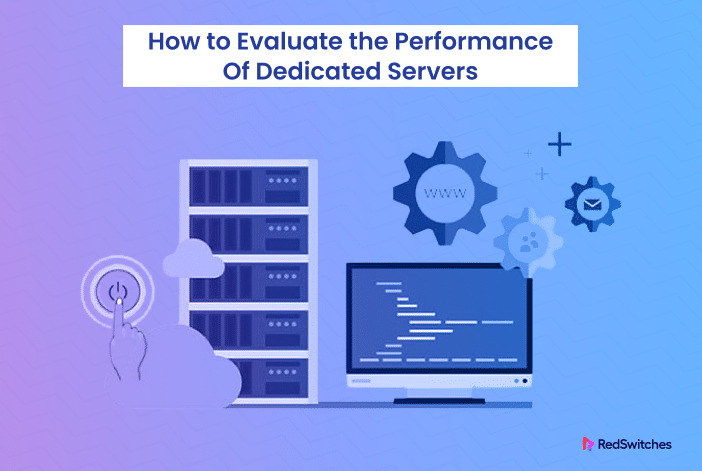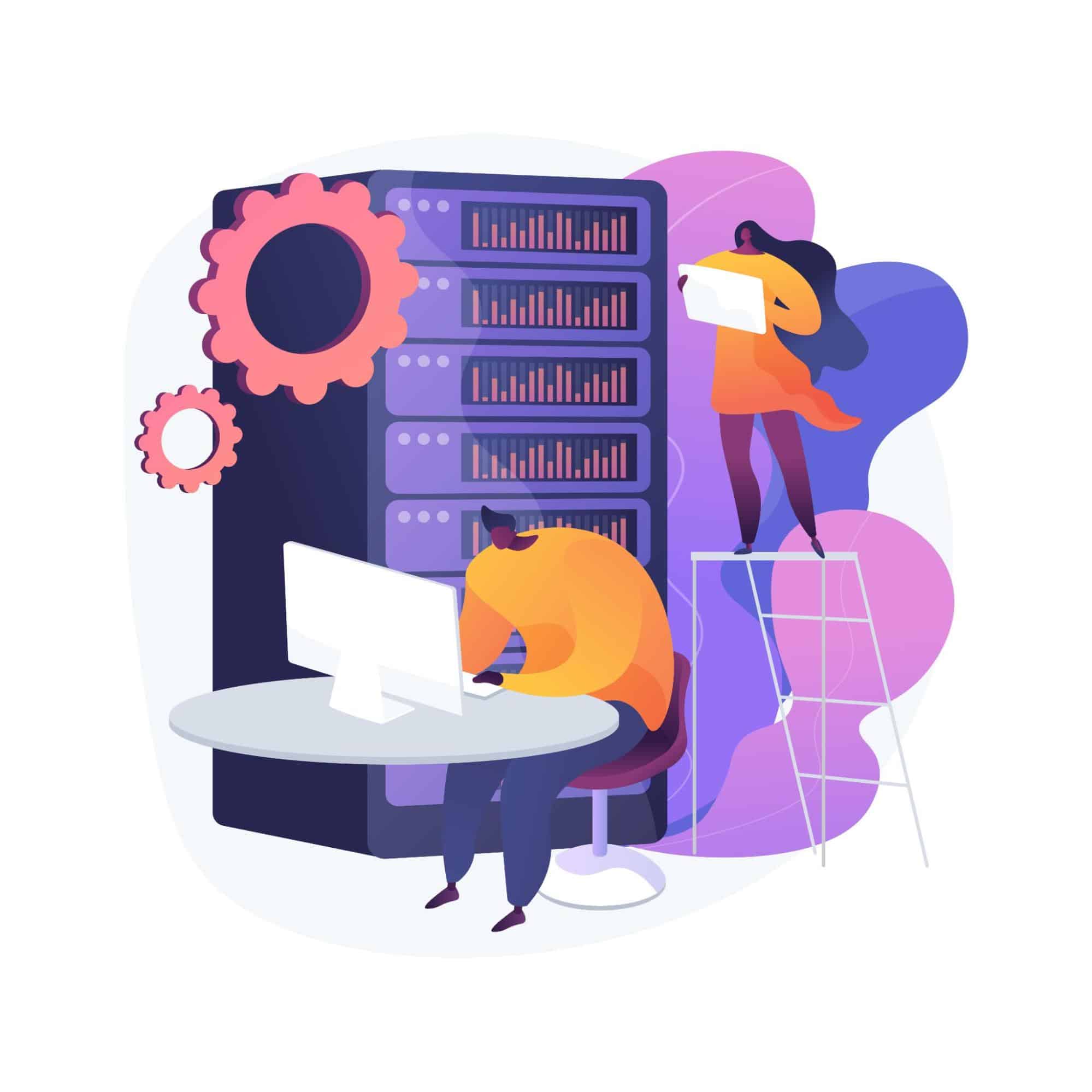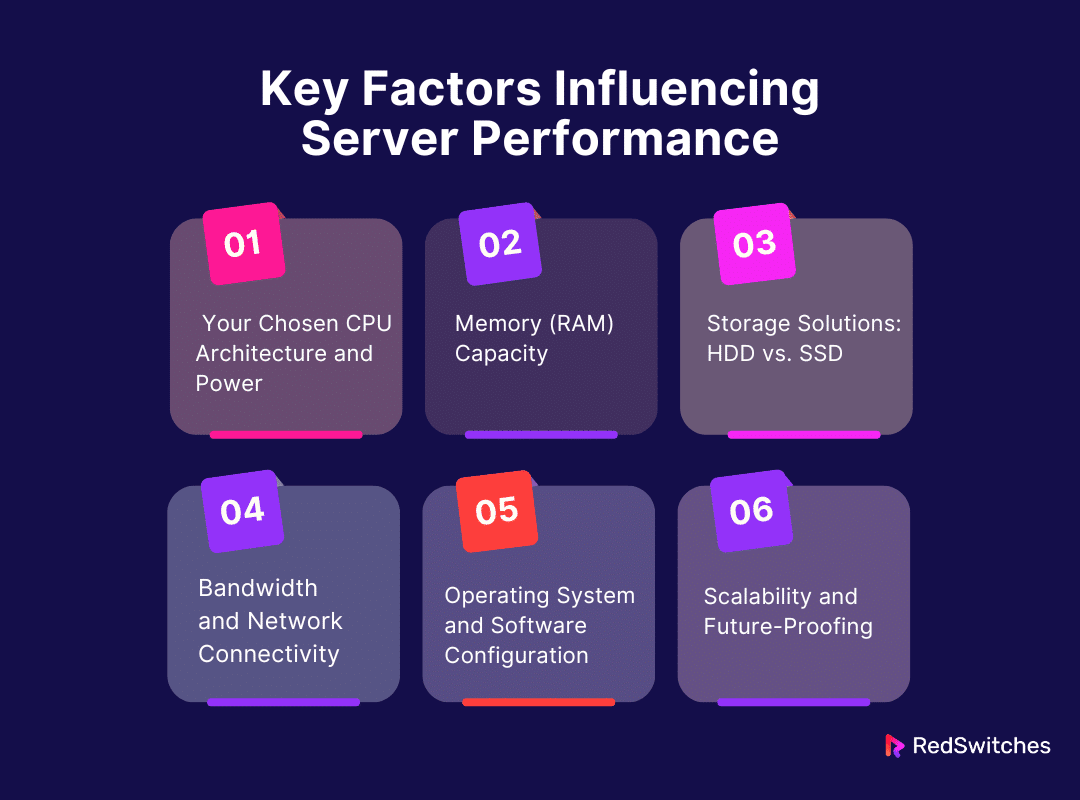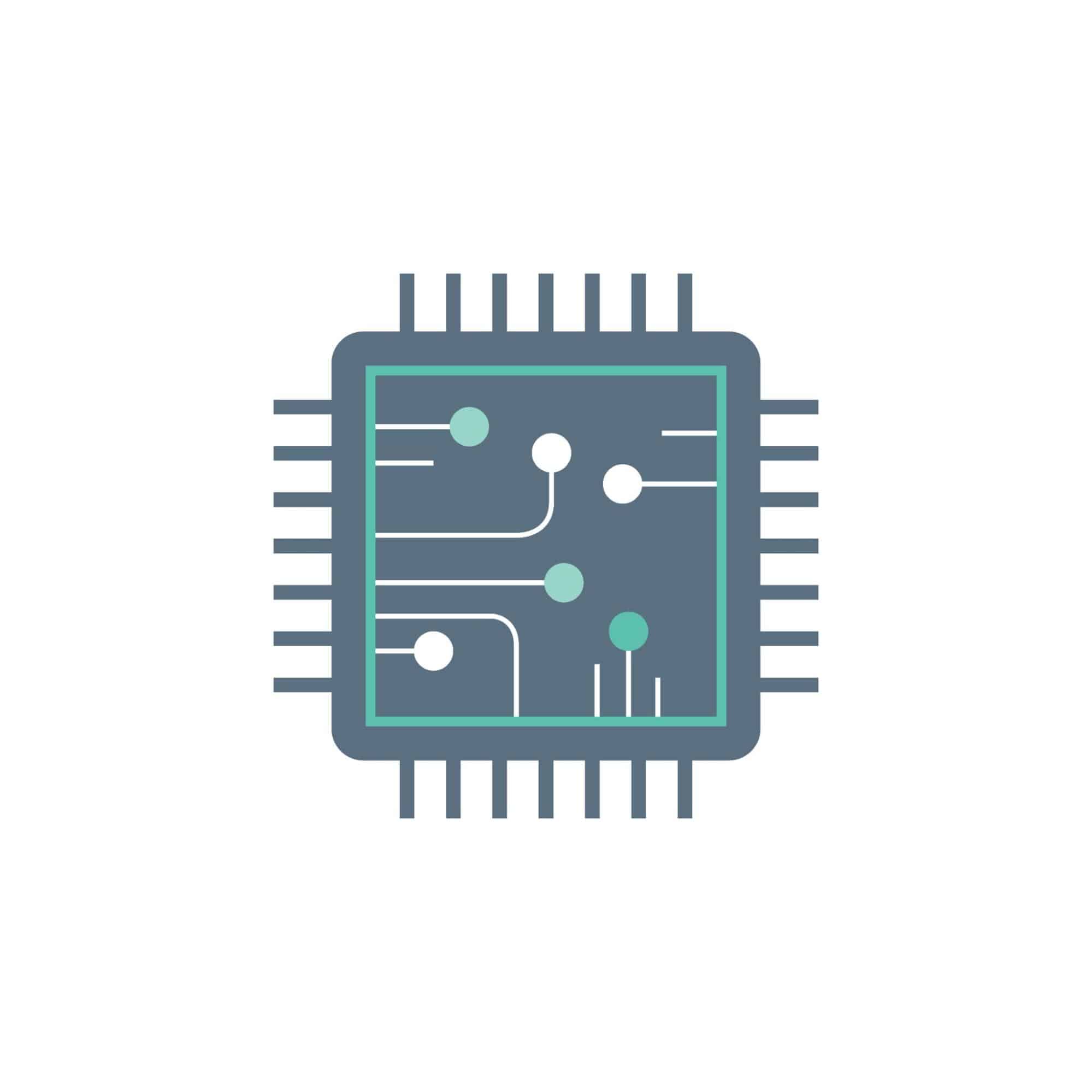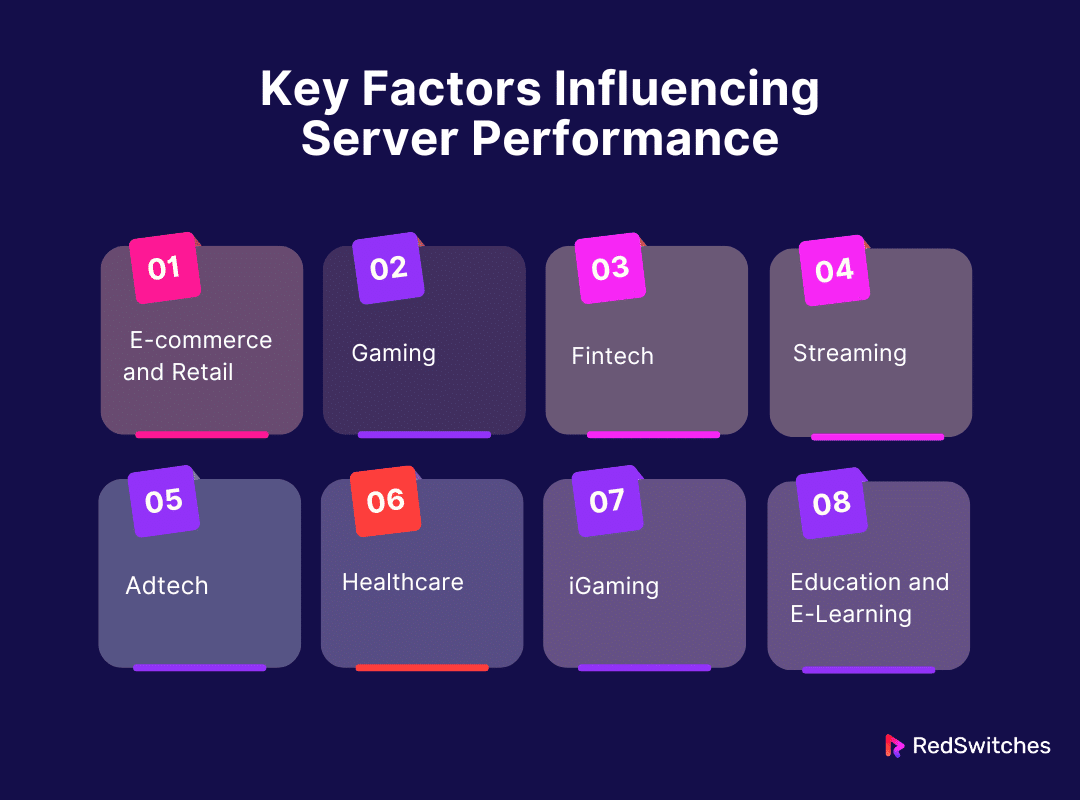Key Takeaways
- The importance of dedicated server performance is evident by its direct impact on user performance.
- Your chosen CPU, RAM, and storage can considerably impact the performance of a server.
- Key industries using high-performance servers include healthcare, education, iGaming, etc.
- You can evaluate server performance using advanced indicators. These include I/O Operations Per Second (IOPS), RAM performance, thermal management, etc.
- A server impacts website performance by affecting speed and load time, security, customization, and control, etc.
- You can maximize site performance with a dedicated hosted server by picking the right hosting package.
- Prioritizing maintenance and optimizing server configuration can also be helpful in this regard.
Did you know that 25% of individuals globally reported that their servers’ average hourly downtime costs between $301,000 and $400,000? This shows how damaging server performance issues can be for a business. It highlights the need for businesses to practice meticulous research when picking server solutions.
Dedicated hosted servers emerge as a popular choice when discussing server performance. This is because they are known for their high-performance capabilities. However, even when choosing these servers, one must conduct consistent performance checks to ensure optimal performance.
This blog will discuss everything related to dedicated server performance. It will also explain how to evaluate the performance of your dedicated hosted servers, empowering you to take charge of your server performance.
Let’s begin!
Table of Contents
- Key Takeaways
- The Importance of Server Performance
- Key Factors Influencing Server Performance
- CPU and Server Performance
- RAM and Server Performance
- Storage and Server Performance
- Key Industries Using High-performance Dedicated Hosted Servers
- Evaluating Server Performance: Advanced Performance Metrics
- How Does a Server Impact Website Performance?
- How to Maximize Website Performance with a Dedicated Server
- Conclusion
- FAQs
The Importance of Server Performance
Credits: FreePik
Server performance directly impacts the user experience. For example, if a server is not performing to its 100%, this can reflect page load times, uptime, and the overall smoothness of websites and applications.
A Google study found that a delay of just one second in mobile page load times can affect conversion rates by around 20%. This statistic also highlights the nature of server performance for online platforms and websites.
Key Factors Influencing Server Performance
Below are a few factors that can influence server performance:
Your Chosen CPU Architecture and Power
A server’s performance depends on the CPU’s architecture, including cores, threads, clock speed, and cache size. A multi-core CPU server can handle more tasks concurrently. This boosts performance for parallel processing workloads.
However, a CPU with a higher clock speed may offer better performance for applications that rely on single-threaded processes. Choosing a server with the right CPU configuration is integral for achieving optimal performance.
Memory (RAM) Capacity
Random Access Memory (RAM) is your server’s immediate data storage space, where you can store and access data quickly. The amount of RAM directly impacts a server’s ability to perform multiple simultaneous processes.
Insufficient RAM equals bottlenecks. This can force the server to swap data to disk storage, which is significantly slower. For intensive applications, ensuring your server has ample RAM is crucial to maintaining smooth and efficient operations.
Storage Solutions: HDD vs. SSD
What you choose between Hard Disk Drives SDDs and HDDs can dictate your server performance capabilities. SSDs come with faster read/write speeds. They offer significant advantages in terms of data access times and reliability, especially for data-intensive applications.
SSDs, however, are preferred for scenarios where speed and quick data retrieval are necessary. Integrating SSD technology in an affordable dedicated server setup can drastically reduce latency and improve overall performance.
Bandwidth and Network Connectivity
Bandwidth and network connectivity determine how quickly data can be transferred to and from your server. A dedicated hosted server with high bandwidth and a robust network infrastructure will offer exceptional performance. It will be equipped to handle high traffic, will experience minimum latency, and ensure accelerated load times.
When evaluating server options, consider the network’s quality and redundancy measures. Reviewing the provider’s peering arrangements is also advisable to ensure your server maintains optimal connectivity and uptime.
Operating System and Software Configuration
Your chosen operating system and software configurations also directly impact server performance. A properly configured server can maximize hardware utilization and enhance security and stability.
Regular updates and optimizations to the OS and application software can mitigate vulnerabilities, reduce overhead, and improve performance. Tailoring the server’s software environment to your use case allows for a more streamlined operation.
Scalability and Future-Proofing
As your business needs grow, your current servers may struggle to handle the increasing load. This is why scaling your server resources in response to growing demands is essential.
A server offering scalability options ensures your infrastructure can evolve alongside your business needs without downtime.
CPU and Server Performance
Credits: FreePik
Does More CPU Make a Server Faster? The CPU (Central Processing Unit) is among the most integral components of a server. It executes instructions and processes data. A more powerful CPU can significantly enhance a server’s performance. Such CPUs are great for tasks that require intensive computation. Examples include:
- Data analysis.
- Gaming servers.
- Applications that process numerous requests simultaneously.
However, the improvement is not linear. Additional CPU resources may not translate to noticeable speed improvements for your specific applications beyond a certain point. It’s about finding the right balance that suits your server’s workload.
How Much CPU Do I Need for a Dedicated Hosted Server?
Consider your application’s demands to determine the best CPU configuration for a dedicated hosted server. Basic web hosting does not demand a high number of cores.
For more CPU-intensive applications, you will need a server with multiple cores and higher clock speeds. Examples include large-scale databases and video encoding. Evaluating your application’s processing requirements and peak load scenarios will guide you toward the optimal CPU choice.
RAM and Server Performance
RAM (Random Access Memory) is crucial for a server’s performance as it stores the data and instructions that the CPU needs quick access to. More RAM can speed up a server’s operations by allowing more data in this fast-access memory. It lowers the need to find data from slower storage solutions like HDDs or SSDs.
Ample RAM ensures smooth performance, especially for applications that handle large datasets or run multiple processes concurrently. However, similar to CPUs, there’s a threshold after which more RAM might not yield significant speed enhancements for your use case.
Do you want to learn how to optimize load balancer performance? Read our blog, ‘How It Works: Load Balancer Performance Customization,’ for expert suggestions.
How Much RAM Do I Need for a Dedicated Hosted Server?
The amount of RAM needed for a dedicated hosted server varies depending on the needs of your applications. Simple websites or personal blogs might run efficiently with 8GB to 16GB of RAM.
Applications, like large databases and virtualization environments, may demand 32GB or 64GB, or more. When evaluating your RAM needs, consider the nature of your application. This includes the expected user load and future growth projections. Ensuring a scalable solution for RAM upgrades is also prudent, as your needs may evolve.
Storage and Server Performance
Storage capacity doesn’t directly influence how fast a server performs tasks; however, the type of storage can. SSDs (Solid State Drives) offer faster read/write speeds than traditional HDDs (Hard Disk Drives). This can improve server performance, especially for operations involving frequent disk access.
Therefore, while having more storage is beneficial for handling larger datasets, opting for faster storage can help enhance server speed. Storage performance metrics like Input/Output Operations Per Second (IOPS) are also worth considering when evaluating server options. Keep reading to learn more about the key metrics of server performance.
How Much Storage Do I Need for a Dedicated Hosted Server?
The required storage for a dedicated hosted server varies greatly depending on the use case. Basic web hosting might require relatively little storage, whereas data-intensive applications (like video streaming services or big data analytics) will necessitate significantly more. It’s important to consider current storage needs and plan for future growth.
The choice between HDD and SSD should be based on a balance of capacity needs, performance requirements, and budget constraints. Due to their speed, SSDs are preferred for modern applications. However, they may come at a higher price tag per GB than HDDs.
Key Industries Using High-performance Dedicated Hosted Servers
The top sectors that significantly benefit from employing high-performance servers include:
E-commerce and Retail
The e-commerce sector demands high-speed, reliable, and secure hosting solutions to handle the surge in online shopping. The demand is even higher during peak seasons like Black Friday and Cyber Monday.
A dedicated hosted server can offer the scalability e-commerce businesses need to manage:
- Fluctuating traffic.
- Process transactions securely.
- Store vast amounts of product data.
E-commerce platforms use dedicated hosted servers to ensure smooth, fast user experiences, which is crucial for customer satisfaction and conversion rates.
Gaming
The gaming industry requires high-performance servers. This is especially true for gaming environments like multi-player, real-time data processing, and low-latency connections. These servers ensure seamless, immersive experiences in such environments. A gaming server must support high traffic volumes, offer fast load times, and enable complex real-time interactions without lag.
These servers must also have advanced security measures to protect against DDoS attacks – which are common in gaming. Gaming companies can use high-performance dedicated hosted servers to deliver the speed and reliability that gamers demand.
Fintech
The need for reliable and secure server infrastructure in the fintech sector cannot be overstated. Millions of financial transactions are carried out in such sectors every millisecond, requiring high-performance servers. These servers help ensure rapid data processing, real-time analytics, and high-level encryption.
A server with scalability is also crucial for fintech companies experiencing rapid growth. These servers facilitate high-speed transactions, secure data storage, and 24/7 online banking services.
Streaming
The streaming industry involves video, music, and live broadcasting. These services demand servers that can deliver high-definition content to a global audience with low buffering. Dedicated hosted servers for streaming must have high bandwidth capacities and robust data processing capabilities. They must also come with extensive storage solutions to manage the large data volumes transferred and stored.
These servers enable content providers to offer high-quality streaming services. They support this sector’s heavy traffic loads and dynamic content delivery requirements.
Adtech
In advertising technology (Adtech), the speed and accuracy of data processing directly affect the effectiveness of an ad campaign. Adtech companies rely on dedicated hosted servers to manage large datasets. These servers also allow real-time bidding for ad placements and the analysis of consumer behavior data.
These servers must provide high-speed connectivity and real-time processing capabilities. This ensures that ads reach the target audience at the right time, making high-performance servers a must-have in the ad tech ecosystem.
Healthcare
Dedicated hosted servers manage and store sensitive patient information and medical records and support telemedicine services in healthcare. The industry needs servers that ensure data privacy and comply with regulations like HIPAA (Health Insurance Portability and Accountability Act). These servers must be able to handle the complex data involved in medical analytics and imaging.
High-performance servers facilitate swift and secure access to medical data. This enhances patient care and operational efficiency.
iGaming
The iGaming industry, which includes sports betting, online casinos, and lottery games, requires servers that can handle high user volumes, provide secure payment transactions, and offer fast, reliable gameplay.
The best dedicated servers for iGaming ensure low latency, high-throughput performance, and robust security features to protect against fraud and cyber threats. These servers support the dynamic and interactive nature of online gaming, providing the reliability and speed necessary for a seamless user experience.
Education and E-Learning
With the increasing popularity of online education and e-learning platforms after the COVID-19 pandemic, there is an increase in demand for servers supporting virtual classrooms, online courses, and interactive learning management systems (LMS). Educational institutions and e-learning providers use dedicated hosted servers to store educational materials, manage student data, and provide a smooth, interactive online learning experience.
Also Read: Web Hosting Uptime Guaranteed: How To Monitor Downtime 2024.
Evaluating Server Performance: Advanced Performance Metrics
When evaluating the performance of a server, you must look beyond basic specifications. Advanced performance indicators provide a more nuanced view of how well a server can perform for certain workloads and demands. Here are some key metrics to consider:
I/O Operations Per Second (IOPS)
IOPS is a vital measure of a server’s storage device performance. It indicates how many read/write operations a storage device can handle every second. High IOPS can greatly improve the performance of applications that require frequent disk access.
This includes database servers or servers hosting high-traffic websites. Experts suggest prioritizing high IOPS storage solutions, like SSDs, is crucial for optimal performance for dedicated hosted servers handling data-intensive applications.
Network Throughput and Latency
Network performance ensures a server can communicate effectively with other systems and users. Throughput is the data that can be sent over a network at a specific time. Latency is the time that passes before a transfer starts following an instruction for its occurrence.
Servers requiring high-speed data transfers, such as those used for large-scale cloud applications, need high network throughput and low latency. Evaluating a server’s network capabilities, including bandwidth and the quality of physical network connections, is important for applications where timely data transfer is necessary.
Memory (RAM) Performance
A server’s speed and amount of RAM can greatly affect its ability to process tasks quickly. This is especially true for applications that store large amounts of data in memory. Servers with high-performance RAM can better support applications with rapid data processing needs, such as real-time analytics platforms.
When picking a server, consider both the total amount of RAM and its speed to ensure it meets your applications’ performance requirements.
Processor Utilization and Efficiency
A server’s CPU performance is not just about its speed and core count. It’s also about how effectively it uses its resources. Processor utilization metrics indicate how much CPU capacity is used, while efficiency refers to how much work is accomplished during this utilization.
A best dedicated server will have a balanced CPU load, where the processor is neither underutilized (indicating wasted resources) nor consistently overutilized (causing performance bottlenecks).
Thermal Management
Credits: FreePik
Effective thermal management is critical for maintaining server performance. Overheating can cause servers to throttle CPU speeds, decreasing performance. Advanced servers have high-performance cooling systems and thermal controls to maintain optimal operating temperatures.
Ensuring your server has adequate cooling solutions is vital, especially for high-density configurations or environments with elevated ambient temperatures.
How Does a Server Impact Website Performance?
Your website’s performance can impact everything from user experience to search engine rankings. The server your website is hosted on significantly affects its performance. So, you must understand the impact of your server choice on website performance. Here are a few factors indicating how a server impacts its performance:
Speed and Load Time
A server’s most direct impact on your website is its loading speed. Websites hosted on servers with the right processing power, memory, and storage solutions (SSDs) will load quicker than those on less capable machines. Dedicated hosted servers often provide better load times than shared hosting. They have dedicated resources to handle website traffic without sharing it with others.
Uptime and Availability
Your server reliability is critical. A dedicated hosted server should guarantee high uptime rates, making your website available to users without frequent downtimes. Regular server outages can frustrate users, damage brand reputation, and decline SEO rankings. A dedicated hosted server typically offers better uptime than shared or virtual servers, as it can be configured and optimized for resilience and redundancy.
Scalability
As your site gains consistent traffic, your server must be able to handle the increased load. A dedicated hosted server can offer the scalability your website needs, allowing for CPU, RAM, and storage upgrades as required. This flexibility ensures that your website can perform well, even as demand grows.
Security
A server’s security features protect your website from DDoS attacks and malware. Dedicated hosted servers often provide improved security measures, including security audits, firewalls, and intrusion detection systems. Since you are not sharing the server with other websites, the risk of cross-site contamination is minimized, offering a more secure environment for your website.
Customization and Control
With a dedicated hosted server, you can control the server environment completely, allowing for custom configurations. You are in charge and can tailor every aspect of the server environment to complement your website’s specific needs, optimizing performance. Whether it’s setting up certain software versions or custom caching, having this control can impact how well your website performs.
Bandwidth and Data Transfer
The data your website can transfer in a given time, often impacted by the server’s bandwidth, can affect website speed and accessibility. A dedicated hosted server usually offers more bandwidth than shared hosting. This results in accelerated data transfer rates and support.
Also Read: Ensure Server Efficiency With Essential Monitoring Tools.
Also Read: Improving Website Speed and Performance with Dedicated Server Hosting
How to Maximize Website Performance with a Dedicated Server
While dedicated hosted servers are known for their performance, you can maximize their performance potential in several ways. Here is how you can maximize your website performance with a dedicated hosted server:
- Choose the Right Server Configuration
The first and most important step is to choose the right server configuration.
Assess Your Needs
Before selecting a server, evaluate your website’s resource requirements. Consider factors like traffic volume, data storage needs, and application complexity. This assessment helps choose an affordable dedicated server with the necessary power without overpaying for unneeded resources.
Opt for Scalability
The best dedicated server plans offer scalability, allowing you to adjust resources as your site flourishes. Look for providers that offer hassle-free RAM and storage upgrades, ensuring your website can handle increased traffic and data without performance hitches.
- Optimize Server Resources
After choosing the server configuration, now its time to optimize your server resources.
Dedicated Resources
A top advantage of a dedicated hosted server is allocating dedicated resources. Since your website has exclusive access to all the server’s resources, you can optimize them to suit your website’s specific needs.
Resource Management
Use tools and control panels to monitor and manage resource usage effectively. Monitor CPU load, memory usage, and disk I/O operations. Proper management ensures your website has the necessary resources to operate smoothly, especially during traffic spikes.
- Improve Security
Now, let’s discuss how to improve server security.
Implement Advanced Security Protocols
You can implement advanced security measures like firewalls with a dedicated hosted server. Prioritizing security protects your website from threats and ensures consistent performance by preventing malicious activities.
Regular Updates and Maintenance
Ensure your server’s operating system and software are updated with the latest patches and updates. Regular maintenance helps avoid weaknesses and keeps your website running efficiently.
Also Read: Choosing Server Hardware: Components.
- Improve Loading Speeds
Credits: FreePik
Here is how to improve your server loading speed.
Use a Content Delivery Network (CDN)
Integrating a CDN with your dedicated hosted server can considerably reduce visitor loading times worldwide. A CDN caches your site’s static content on multiple servers worldwide. This enhances user experience and allows for accelerated access.
Optimize Web Content
Optimize your website’s content, including compressing images, minifying CSS and JavaScript files, and leveraging browser caching. These optimizations can significantly decrease page load times, enhancing the overall performance of your website.
- Monitor Performance
It’s very important to monitor the performance of your server.
Regular Monitoring
Monitoring tools can be a great way to keep track of your website’s performance. This includes monitoring uptime, response times, and traffic patterns. Regular monitoring helps to find and address issues proactively. This practice can help prevent potential downtimes.
Analyze and Optimize
Use analytics to evaluate how visitors interact with your website and identify areas for improvement. Continuous analysis and optimization based on data-driven insights can improve site website performance and user experience.
Conclusion
Optimizing your dedicated server performance guarantees maximum uptime provides a smooth user experience, and helps effectively manage resources. Evaluating server performance requires an in-depth understanding of performance indicators and metrics.
RedSwitches is a reputed player in this domain. We offer tailored server solutions that cater to the demands of digital transformation. Our focus is on performance, reliability, and customer-centric support, and our user reviews (4.8 on Trustpilot) prove this.
We invite you to explore how RedSwitches can help ensure your servers perform optimally year-round. Discover more about our solutions, like dedicated server hosting, and how we can help you achieve your digital ambitions by contacting our expert team today!
FAQs
Q. Is a dedicated server faster?
A dedicated hosted server is typically faster than other hosting options, like shared hosting. This is because your entire server’s resources are dedicated to your website or application. This means your site can run more efficiently and handle higher traffic volumes without performance degradation.
Q. How can I improve my dedicated server performance?
Some ways to improve dedicated hosted server performance include regular updates, optimizing server configuration, and implementing caching. Other ways include using a CDN and regularly monitoring performance.
Q. Is a dedicated server faster than shared?
A dedicated hosted server is much faster and more reliable than shared hosting. Shared hosting environments involve sharing server resources like RAM and disk space with other websites. This leads to slower response times and decreased performance, especially during peak traffic.
Q. What is a dedicated server?
A dedicated server is a physical server dedicated entirely to one user or organization It provides ultimate control over the server and its resources.
Q. How does a dedicated server differ from a virtual private server (VPS)?
A dedicated hosted server is an entire physical server dedicated to one user. It offers more resources and performance capabilities than a VPS (a virtualized server environment within a larger physical server).
Q. What are the benefits of choosing a dedicated server over shared hosting or VPS?
Dedicated hosted servers excel in performance and offer greater control over server configurations. They also provide higher security levels and allow customizations to meet specific requirements.
Q. How can I ensure that my dedicated server performs optimally?
To maximize server performance, consider performance improvements like optimizing server configurations and monitoring resource utilization. You can also implement regular maintenance practices.
Q. What should I look for when selecting a dedicated server provider?
When choosing the right server provider, consider reliability, scalability, and customer support quality. Server management services and the provider’s reputation in the industry are also worth considering.
Q. What advantages do dedicated servers offer for businesses?
Dedicated hosted servers provide businesses with enhanced performance, increased security measures, and full control over server settings. They also provide the ability to handle high traffic volumes and the flexibility to customize the server to suit specific needs.
Q. How do dedicated servers and VPS differ in terms of control over the server?
Dedicated hosted servers offer complete control over the physical server and its resources. VPS hosting provides control over a virtualized environment within a shared physical server.
Q. Can I customize my dedicated server according to my requirements?
Dedicated hosted servers allow users to customize configurations, install specific software applications, and adjust security settings. You can also tailor resources based on their individual needs.
